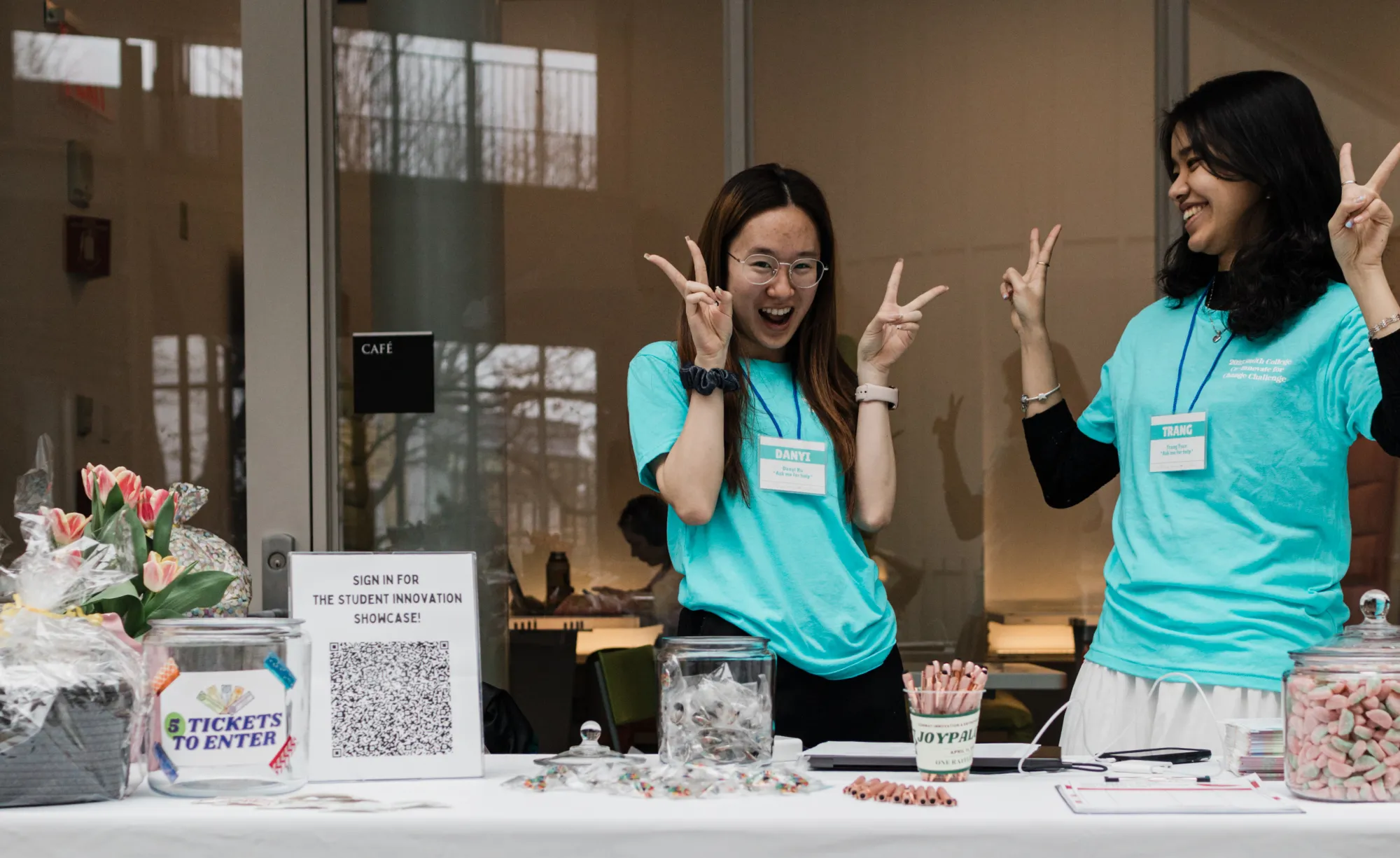Innovation Challenge
Get ready for this uniquely Smith learning experience that challenges you to blend your innovative interests with your academic pursuits. Grab a friend, deeply explore a problem, design a solution that aligns with at least one global development goal, and showcase your creativity for the community.
The Co-Innovate for Change Challenge
Dive In
Ruha Benjamin says imagination is a way to challenge unfair systems. She calls it a resource, a battleground, and a place to rest. In our collective imagination, we can make sense of the world and we can remake it. Imagination helps us ask “what else is possible?” Futures thinking helps us look at what’s happening now and ask “where might things go?” Together, they let us question what exists and explore what could be different. They help us see problems clearly before we design new solutions.
Resources
- A Legendary World Builder on Multiverses, Revolution and the 'Souls' of Cities by N.K. Jemisin on the Ezra Klein Show (podcast)
- Futures Designed by Faith Popcorn by Faith Popcorn (podcast)
- How Afrofuturism can help us imagine futures worth living in by The Guardian (article)
- How to Make a Future Scenario as Immersive and Explorable as a Videogame: Behind the “The Road to Zerophoria” Scenario by Jane McGonigal (article)
- Imagination: A Manifesto by Ruha Benjamin (book)
- Is technology our savior – or our slayer? by Ruha Benjamin (TED Talk)
- Speculative Everything: Design, Fiction, and Social Dreaming by Tony Dunne & Fiona Raby (book)
- The Journal of Futures Studies
- The Thing from the Future by Situation Lab (card deck)
- TrendBank by Faith Popcorn (website)
- What is 'futures studies' and how can it help us improve our world? by World Economic Forum (article and audio)
Photo by Erin Long
